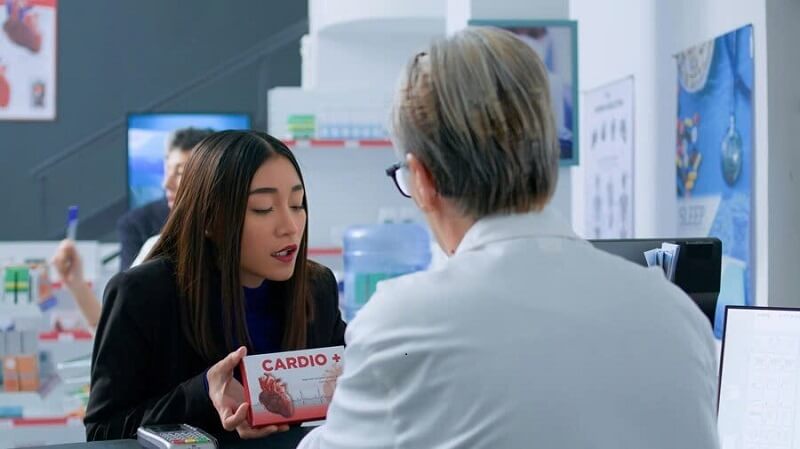Essential Guide to Job Description COO
The job description COO is critical in defining the Chief Operating Officer’s strategic roles across diverse industries. From startups to manufacturing and healthcare, understanding these responsibilities helps businesses thrive.
The role of a Chief Operating Officer (COO) is a cornerstone in any organization’s success. As a key executive, the COO handles strategic planning, operational efficiency, and team management. This article delves into the job description COO, providing detailed insights into their responsibilities across various industries. Whether in a dynamic startup or an established manufacturing company, understanding the COO's role can help businesses unlock their full potential.
1. The Core Responsibilities of a COO
A COO’s primary goal is to bridge strategy and execution, transforming a company’s vision into practical, day-to-day results. Acting as the operational backbone of the organization, the COO collaborates closely with the CEO and other executives to ensure all departments function harmoniously. This section explores the essential responsibilities that define the job description COO, emphasizing their pivotal role across industries.

1.1. Strategic Planning and Execution
The COO plays a fundamental role in shaping and executing the company’s strategic goals. They translate high-level objectives into actionable steps, aligning every team with the company’s mission. A clear and well-structured strategy ensures that resources are utilized efficiently and objectives are met within the desired timelines.
For instance, in a startup environment, the job description COO startup often includes prioritizing rapid scaling while managing financial constraints. Here, the COO must assess the viability of new markets, allocate resources effectively, and implement processes that can adapt to growth. On the other hand, in manufacturing, strategic planning revolves around optimizing production schedules and meeting strict delivery deadlines.
Moreover, COOs often act as problem-solvers when unforeseen challenges arise. Their ability to adapt strategies in response to changing market conditions is critical for maintaining a company’s momentum and achieving long-term goals.
1.2. Operational Oversight
Operational efficiency is at the core of a COO’s responsibilities. By monitoring and refining internal processes, the COO ensures that daily operations run seamlessly. This includes managing supply chains, optimizing workflows, and ensuring compliance with industry regulations.
For example, in a job description COO manufacturing company, overseeing production lines is a key priority. A COO might implement automation technologies to reduce costs and increase output, or they might focus on improving inventory management systems to minimize waste. In healthcare, operational oversight may involve coordinating between medical staff and administrative teams, ensuring that patient care remains uninterrupted and of high quality.
A COO’s meticulous attention to detail in operations guarantees that every aspect of the business is aligned with the overall strategy. Their leadership fosters a culture of accountability, where teams strive for continuous improvement.
1.3. Building and Managing Teams
Another critical aspect of the job description COO is team management. The COO serves as a mentor and leader, fostering a collaborative and high-performing workplace culture. They are responsible for hiring top talent, defining roles, and ensuring that employees are motivated to contribute to the company’s success.
Strong leadership skills are crucial in this context, enabling the COO to inspire trust, drive productivity, and align team efforts with organizational goals. In startups, this might mean assembling a small but agile team capable of wearing multiple hats. In manufacturing, it involves managing a large workforce while adhering to strict safety and productivity standards. Regardless of the industry, the COO must balance team dynamics, resolve conflicts, and create an environment where employees can thrive.
1.4. Financial and Risk Management
Finally, COOs are deeply involved in financial oversight and risk management. They work alongside the CFO to budget resources, forecast revenue, and control costs. Risk management, particularly in volatile industries like healthcare or startups, is a critical function, requiring COOs to anticipate potential challenges and implement measures to mitigate them.
Effective problem solving skills are indispensable here, allowing the COO to quickly analyze complex situations, devise actionable solutions, and minimize disruptions to operations. For example, a COO in a healthcare organization might evaluate the risks associated with adopting new medical technologies, ensuring that they align with both patient needs and financial constraints. Meanwhile, in a startup, the COO assesses the financial feasibility of expanding into new markets or launching new products, safeguarding the company’s sustainability.
2. Industry-Specific Roles of a COO
While the core responsibilities of a COO remain consistent, their roles often vary depending on the industry. Let’s explore how the job description COO adapts to different sectors to meet unique challenges and demands.

2.1. The COO in Startups
Startups are known for their fast-paced, innovative environments, requiring a COO to be both adaptable and visionary. In this context, the COO takes on multiple roles, often acting as a bridge between the creative vision of the founders and the operational realities.
For example, a job description COO startup typically involves:
Setting up scalable systems to support growth.
Managing limited resources while ensuring efficiency.
Building a cohesive team that aligns with the startup’s mission.
In a startup, the COO’s ability to pivot quickly is essential. Whether it's adjusting product strategies or expanding into new markets, their leadership ensures the organization stays agile and competitive.
2.2. The COO in Manufacturing Companies
Manufacturing companies demand precision and consistency. Here, the job description COO manufacturing company focuses heavily on optimizing processes, managing supply chains, and maintaining quality standards.
Key responsibilities in this sector include:
Overseeing production workflows to minimize waste and downtime.
Implementing advanced technologies like automation to enhance productivity.
Ensuring compliance with industry regulations and safety standards.
For instance, a COO might spearhead the adoption of lean manufacturing techniques, reducing costs while increasing output. Their technical expertise and problem-solving skills play a pivotal role in driving operational success.
2.3. The COO in Healthcare
The healthcare sector requires a COO to balance operational efficiency with patient-centric care. The job description COO healthcare includes responsibilities like:
Streamlining clinical workflows to improve patient outcomes.
Collaborating with medical staff to ensure resource availability.
Driving cost-effectiveness without compromising service quality.
For example, a COO might implement an electronic health record (EHR) system to enhance data management, ensuring smoother operations across departments. Their efforts directly impact the quality of care delivered, making their role indispensable.
3. Skills and Qualifications of an Effective COO
To excel in their roles, COOs must possess a diverse skill set tailored to both strategic and operational demands. Below are the key attributes highlighted in the job description COO:

3.1. Leadership and Decision-Making Skills
A COO must demonstrate strong leadership abilities to guide teams across departments. Their decision-making process should be informed by both data and intuition, ensuring optimal outcomes in dynamic environments.
3.2. Financial and Analytical Expertise
Proficiency in financial management is a cornerstone of a COO’s success. They are responsible for budgeting, forecasting, and evaluating the financial impact of operational decisions. Analytical skills enable them to interpret complex data, making informed choices that drive growth.
3.3. Communication and Interpersonal Skills
Effective communication lies at the heart of a COO’s role. From liaising with CEOs and board members to addressing the concerns of employees, a COO must articulate ideas clearly and persuasively. Interpersonal skills help them foster collaboration across departments, ensuring that every team works towards a unified goal.
For example, in the context of a job description COO healthcare, strong communication skills enable the COO to align medical staff and administrative teams, ensuring seamless care delivery. Similarly, in a manufacturing company, they may lead discussions with suppliers to secure better terms or manage critical negotiations.
3.4. Adaptability and Problem-Solving
In an ever-changing business environment, adaptability is a key trait for a COO. They must be quick to identify issues, assess risks, and implement solutions. For instance, in a job description COO startup, adaptability often involves managing uncertainty and pivoting strategies based on market feedback.
Problem-solving is equally crucial. Whether dealing with logistical bottlenecks in manufacturing or operational inefficiencies in healthcare, a COO’s ability to analyze and resolve challenges ensures business continuity.
4. Challenges and Opportunities for COOs in Modern Business
As businesses evolve, so do the demands on COOs. The modern job description COO is no longer confined to traditional roles but extends into innovative and strategic territories. Let’s explore the challenges and opportunities COOs face today.

4.1. Navigating Technological Advancements
The rise of technology has significantly impacted the COO’s responsibilities. In industries like manufacturing, the integration of automation and AI has transformed operations. A job description COO manufacturing company now includes overseeing the adoption of technologies that improve efficiency and reduce costs.
However, navigating these advancements comes with challenges, such as training employees to use new tools or ensuring data security. Successful COOs view these as opportunities to drive innovation and stay ahead of competitors.
4.2. Driving Sustainability Initiatives
Sustainability has become a priority for many organizations. COOs play a pivotal role in aligning operations with eco-friendly practices. For instance, in healthcare, a job description COO healthcare might involve implementing waste reduction programs or transitioning to renewable energy sources.
These initiatives not only enhance a company’s reputation but also contribute to long-term cost savings. The ability to balance profitability with environmental responsibility is a hallmark of an effective COO.
4.3. Managing Workforce Dynamics
As work environments shift towards remote and hybrid models, COOs face new challenges in workforce management. In startups, this could mean maintaining team cohesion despite geographical barriers. In manufacturing, it involves addressing labor shortages while meeting production deadlines.
A COO’s leadership in fostering a positive workplace culture and implementing flexible work policies ensures employee satisfaction and productivity.
Conclusion
In today’s fast-paced and competitive business landscape, the role of a COO is more dynamic than ever. The job description COO encompasses strategic planning, operational management, and industry-specific responsibilities. Whether driving innovation in startups, streamlining processes in manufacturing, or enhancing patient care in healthcare, COOs are instrumental in shaping organizational success.
As businesses continue to evolve, the adaptability, expertise, and leadership of COOs will remain critical to navigating challenges and seizing opportunities. By understanding the depth and diversity of their responsibilities, organizations can unlock the full potential of their operations and drive sustainable growth.
- Essential Job Description Supervisor Guide for Success
- Essential Job Description Sales Guide for Success
- Job Description Restaurant Manager – Roles & Skills
- Understanding the job description project coordinator role
- Job Description HR Assistant—Roles and Responsibilities
- Essential Guide to Job Description COO
- Comprehensive Job Description Admin Assistant Insights
- A Comprehensive and In-Depth Job Description for HR Generalist
- Comprehensive Guide: Job Description Executive Chef
- Top 5 Best Job Search Sites for Easy Job Applications
- QA Job Description: Key Skills and Roles in 2025
- The Complete Clerk Job Description Guide
- What Is Your Greatest Weakness? Mastering the Answer
- Master the Phone Interview for Career Success
- Crafting the Perfect CV Personal Statement
- What is a Job Description Warehouse Worker?
- Detailed job description teller bank for career growth
- Comprehensive Job Description Store Manager Guide
- Comprehensive Guide to Job Description Personal Assistant
- Comprehensive Guide to Job Description Nursing Assistant
- Comprehensive Job Description Graphic Designer Guide
- Comprehensive Job Description Chief of Staff Guide
- Comprehensive Job Description Cleaner Guide
- Comprehensive Job Description Assistant Manager
- Comprehensive Guide to Job Description Account Executive
- Comprehensive Guide to Secretary Job Description
- Comprehensive Job Description of Teaching Assistant
- Comprehensive Job Description for a Social Media Manager
- Mastering STAR Interview Techniques: The Ultimate Guide
- “I Hate My Job” – What You Should Do Next
- What Is a Job Description Team Leader?
- A Complete Guide to Job Description Sales Assistant
- Comprehensive Job Description for Security Guards
- Detailed Job Description for HR Manager
- The Ultimate Guide to Job Description Medical Assistant
- Job Description Housekeeping: Key Roles & Responsibilities
- Job Description Merchandiser: Key Roles & Skills
- Job Description Product Manager: Roles and Responsibilities
- Job Description Account Manager: Roles and Responsibilities
- Job Description Marketing Manager: Roles & Skills
- Job Description HR: The Essential Guide for HR Professionals
- Best Jobs for Introverts: Top Careers for Quiet Thinkers
- What is Your Greatest Strength? How to Answer Effectively
- Job Description Data Entry Guide
- Detailed Job Description Sales Manager Guide
- The Importance of Work Experience on a Resume
- Comprehensive Job Description Sales Representative Insights
- Comprehensive Job Description of Project Manager
- Job Description Executive Assistant: Key Responsibilities
- Job Description for Sales Executive: Key Roles and Skills
- Job Description Customer Service Roles
- Job Description Business Analyst: Roles and Skills
- Comprehensive Job Description for a Receptionist
- Mastering the Sales Associate Job Description
- Understanding Accountant Job Description in Detail
- Hard Skills vs Soft Skills: Key Differences and Examples
- Why Do You Want to Work Here? Best Answer and Examples
- How to Decline a Job Offer Politely and Gracefully
- Comprehensive Job Description of Waitress
- Job Description Cashier: Key Responsibilities and Skills
- Where Do You See Yourself in 5 Years?
- Mastering Problem Solving Skills for Career Success
- Effective Job Description Sample Guide
- Behavioral Interview Questions Guide
- Comprehensive Job Description for an Administrative Assistant
- Essential Job Titles for Career Success
- Master Leadership Skills for Effective Management
- How to Write a Perfect Motivational Letter
- CV vs Resume: Understanding the Key Differences
- Top Reasons for Leaving a Job Today
- What Is a Resignation Letter? Key Details You Must Know
- How to Write a Perfect Job Application
